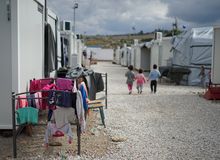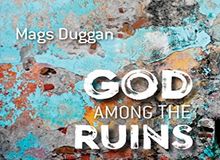


Vista co-editor Jo Appleton, interviews Harvey Kwiyani, CEO of Global Connections, the UK Network for World Mission who recently joined the Vista editorial team.

Foreign Christians in Europe are here to stay and God’s mission needs them here and involved. An article by Harvey Kwiyani.

We find ourselves on a mission frontier, on the periphery of world Christianity. That should cause European Christians to be humble but also hopeful.

The vitality of migrant faith does not represent the de-Christianisation of Europe but the de-Europeanisation of European Christianity.

The answer to the question ‘are you religious’ or ‘do you belong to a religion’ depends on what the respondents understand by being ‘religious.’

According to the European Values Survey, migrants are more likely to belong to either a Muslim community or to be evangelical / Pentecostal than are the non-migrants.

There is increasing cultural diversity that works against the traditional beliefs. The critical factor is the extent to which religious involvement is transmitted to the younger generation.

Apologetics that is targeted on atheism is only reaching a tiny proportion of Europe’s population. The much greater challenge is reaching the huge number of unbelieving Europeans who are indifferent to Christianity and consider religion an irrelevance in modern life.

The road may be long, healing will not be quick. But then comes the encouragement to wait on God, listen to Him, and learn to trust Him again.

True comfort, the comfort that reaches the heart, cannot be separated from the person and work of Jesus Christ.

With no visitors allowed, we found ourselves ‘being church’, filling the gap where other clergy from the community were unable to visit their church members. By Katie McClure.

Let us not forget the future hope and comfort that enabling people to die well will bring.

Whether Covid-19 will lead to a resurgence of faith in Europe will be seen in years to come but, for now, it has forced churches to innovate in their responses to grief and death and share the hope in Christ beyond the walls of the church.

A new narrative will be required as missionaries return to the new ‘normal’; narratives that define the shape of God’s mission in Europe.

The time of crisis is inevitably also a time of opportunity for reconciliation, mediation and a new start.

The church is God’s agent of reconciliation. It will seek for ways to reconcile the people with God and with one another and lead them into God’s kingdom.

Covid-19 exposes the stark inequalities of our world as it wreaks havoc most on those for whom lockdown means no money and no food and who don’t have access to the basics of clean water and soap let alone a garden or park.

As Christians in today’s culture, we need to have an awareness of the competing gods of digital Babylon. If we actively serve the gods of Europe, we may in the end find ourselves not worshiping the God of the Universe.

Seventy-five years ago this week, the forces of Nazi Germany formally surrendered to Allied Forces in what came to be called Victory in Europe Day. But the 9th May is also the seventieth anniversary of a three-minute speech by Robert Schuman.

As evangelicals in Europe, we need intentionally to integrate media engagement in our discipleship and mission strategies and practices.

Discipleship would have us know and learn with our minds, hearts and souls.

Most European Christians have lived through the secularisation process and so they have been conditioned to see it as normal.

For Western European churches mission could be translated as: “Let’s go to other countries to serve”. However, for most Eastern European countries missiology is merely similar to theology.

It might be more helpful to talk about Europe in the plural, to accept that there are probably several different versions of Europe.

We need to stop offering a cheap Christianity to a generation that is tired of consumerism.

Las opiniones vertidas por nuestros colaboradores se realizan a nivel personal, pudiendo coincidir o no con la postura de la dirección de Protestante Digital.